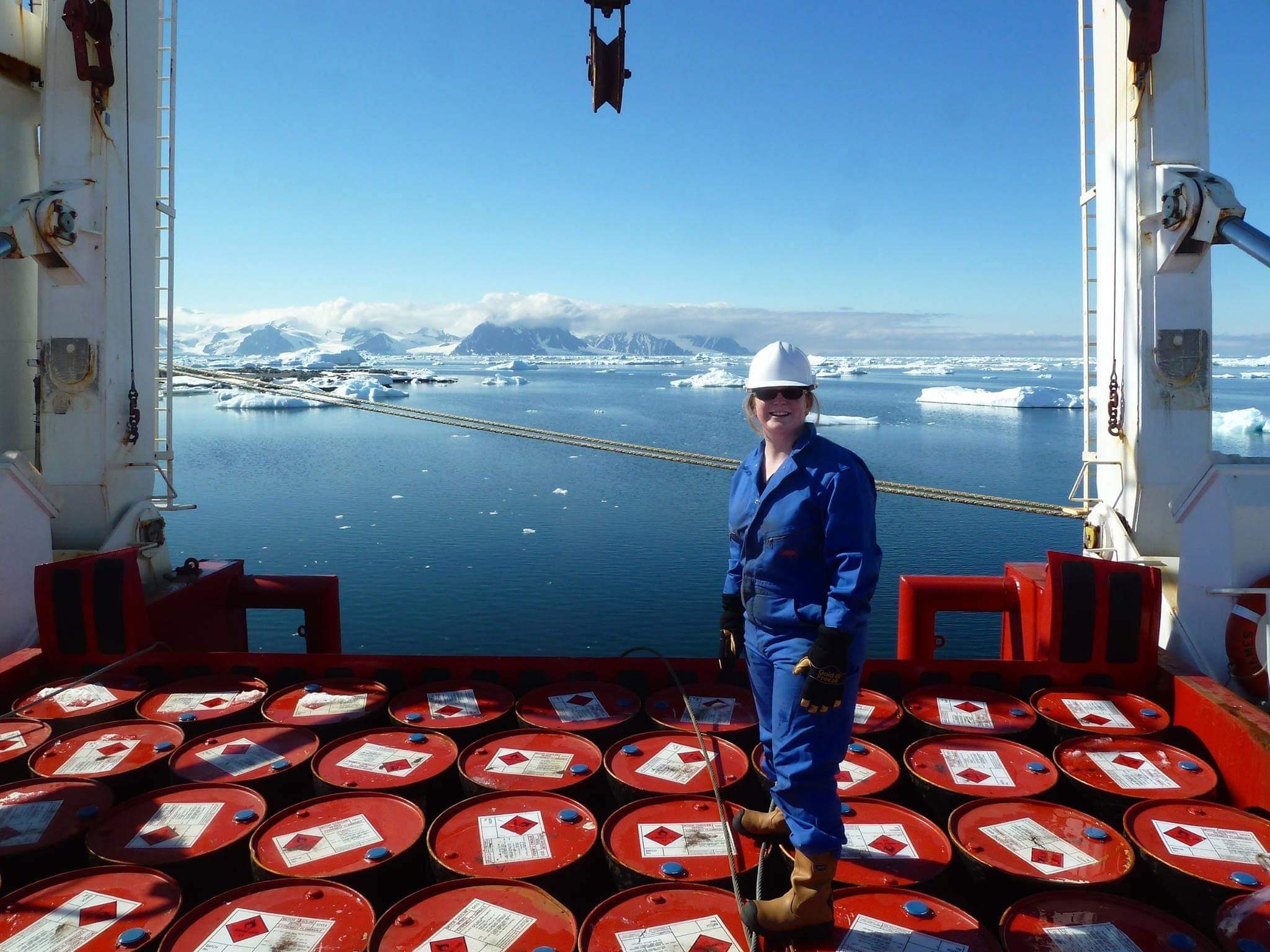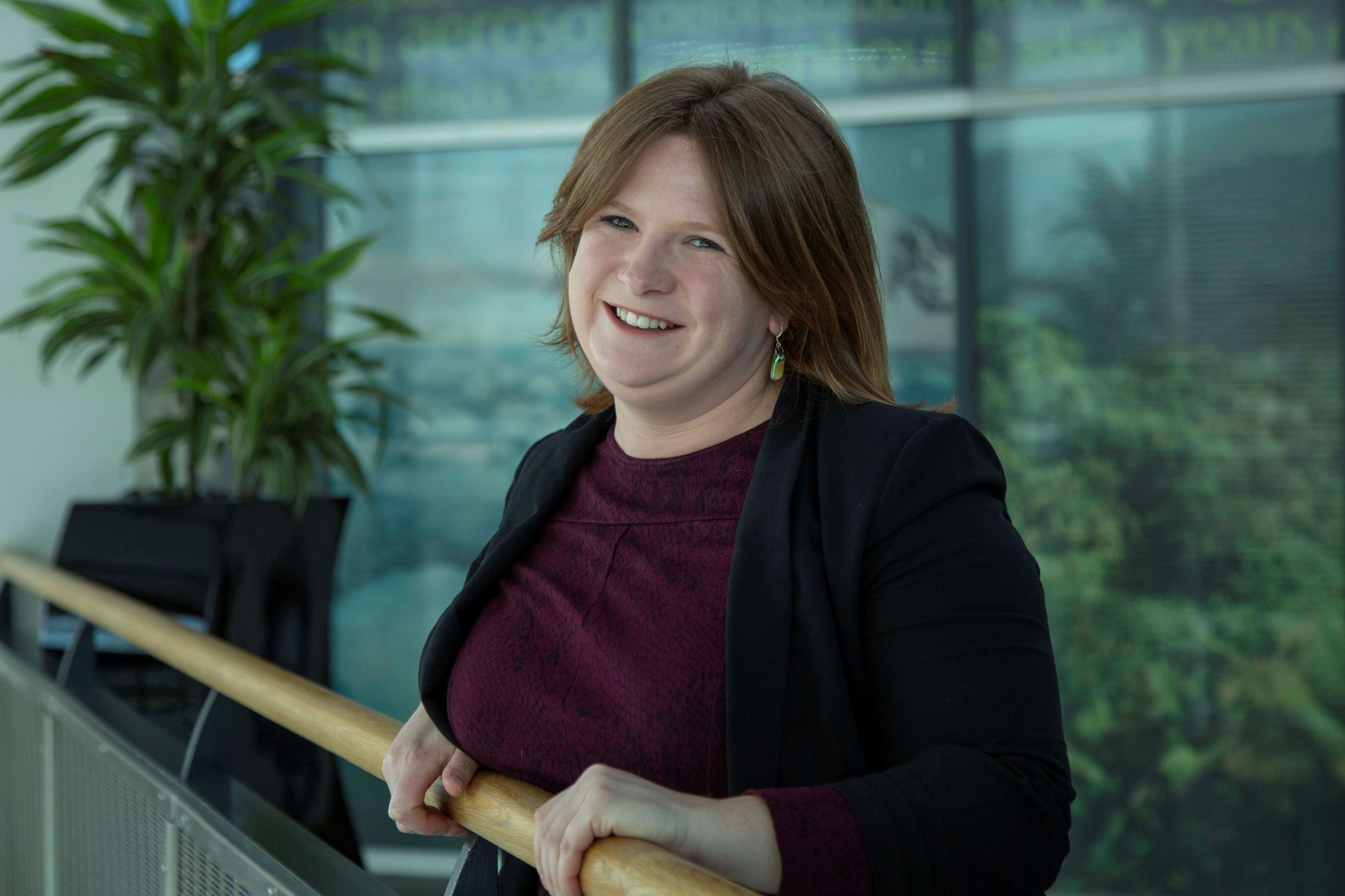Find an area of research you are deeply passionate about
Freya Garry, Climate Scientist, had a long history of working with the Met Office before her career with us even started.

What do I do and why is it important?
My current research area focuses on understanding future projections of multiple hazards that will affect people in the UK over the coming century and understanding the risk that different sectors may face from multiple hazards. For example, this could be multiple extreme events happening simultaneously on the same day or over a few days (such as very high temperatures and high humidity which lead to human health impacts) or over a slightly longer period (such as high temperatures and drought over summer leading to low crop yields).
Understanding future risk from extremes is important to help society make decisions about how to stay safe and thrive, which is our Met Office strategy aim. I am employed in the UK Climate Resilience team and through our climate science expertise we can work with people in different sectors of society to generate risk projections that are based on a strong understanding of the climate science that underlies our projections. My work for the Met Office is also part of a bigger UK wide project on Climate Resilience which you can find out more about at ukclimateresilience.org.
A bit about my career journey
I started studying the climate whilst doing an integrated Master of Oceanography degree at the University of Southampton, wheremy projects were climate science focussed. I completed the course with first class honours and graduated with the top grade of the year; enabling me to win funding to do a doctorate at the University of Southampton, partly funded by the Met Office. My supervisor at the Met Office was Dr Chris Roberts, with whom I completed a summer internship the previous year at the Met Office itself, studying ocean circulation. My PhD involved understanding past change in deep ocean (below 2 km) temperature and future projections. In 2017 I moved to the University of Exeter to work as a postdoc on the ‘Climate of the Last Millennium’ project in partnership with the Met Office, which also involved studying the oceans and climate change over the centuries. I’ve really enjoyed all the climate and ocean focussed work I’ve been doing, and it’s a new change to be looking at climate over land, but I really enjoy expanding my understanding of climate - an important part of being a Climate Scientist.
What’s the best piece of career advice I have received?
Find an area of research that you are deeply passionate about! Clearly there are lots of different interesting problems in climate science, and there is much about the Earth System that we do not fully understand. However, climate science, and research in general, is not easy. It’s therefore good for your wellbeing to be in a role looking at questions that you are really motivated about understanding or using methodologies that you particularly enjoy. Of course, it is not always possible to be doing exactly what you want all the time, but it is worth trying to work on something aligned to your interests – particularly if you will be spending 4 or more years working on it, such as when working towards a PhD.

What do I enjoy most about what I do?
For me variety is important – I have always been a good ‘all-rounder’ and so it is fulfilling to be in a role which includes writing code, analysing data and writing scientific papers, but also talking to stakeholders who want to understand their risks and providing useful and useable research for them. There are many roles like this at the Met Office and a broad skill set is valuable for working here. I am also passionate about promoting diversity and inclusion across the workplace, as historically women, people from low income families, and ethnic minorities are underrepresented in the physical sciences. I co-founded the Women in Climate network at the University of Exeter, and we are starting to run some joint events at the Met Office. I am also involved in the PRISM network in Exeter and am a keen climate science communicator, which has even included my participation in the Climate Stories project, where we used art to communicate climate science.
Who has inspired me most in my career?
I’ve been inspired by many Climate Scientists over my career, but the most inspirational people have taught me about resilience and persistence. I have always had a natural enthusiasm for learning and have been passionate about understanding the environment and human interaction with it, but to tackle adversity has always been something that hasn’t come quite as easily. It’s therefore been inspirational to me to see women Climate Scientists achieving but also being open about some of their experiences and demonstrating extraordinary resilience.
Dr Kate Marvel is one example of a fantastic climate communicator who has been a great role model for me over the last couple of years. I’d also like to mention one of my supervisors through my Masters project and PhD, Dr Adam Blaker, who was an extraordinary source of support throughout, and I hope to be able to give early career Scientists working with me in the future the same level of support and encouragement as he always gave to me.


